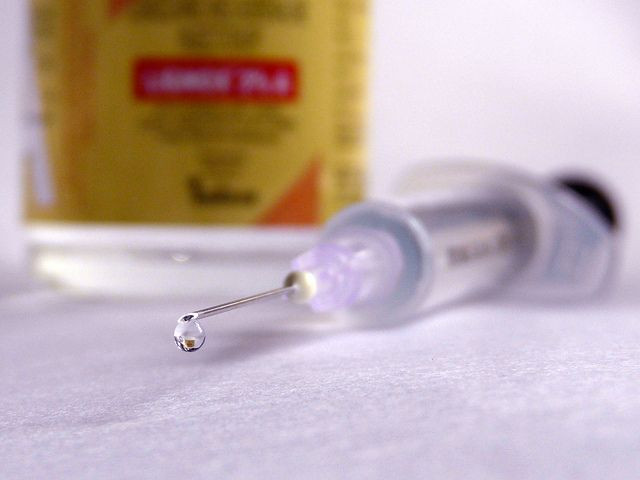HIV Outbreak In Indiana: DEA Arrests 10 People Tied To Disease Spread, Warns Against Prescription Painkillers

The drug ring accused of fueling an uptake of HIV in Scott County, Ind., last year has finally been disbanded by a coalition of local, state and federal law enforcement officials.
On Feb. 5, the U.S. Attorney's Office in Indiana announced the arrest of ten individuals who collectively orchestrated the distribution of drugs, primarily prescription painkillers and methamphetamine, to Scott County. The painkiller pills were then ground up and used intravenously. From there, it’s believed the sharing of HIV-infected needles spurned an outbreak; while Scott Country previously had an average of less than 10 new HIV cases annually, the last 13 months has seen 188 new cases.
"Scott County was targeted by an organization with the goal of infesting that community with drugs, including the prescription painkiller Opana," explained U.S. attorney Josh Minkler in a statement. "This became an epidemic and local law enforcement asked for our help. Today, I am pleased to announce that the organization has been dismantled but this is only a start; one aspect of a bigger solution."
The arrest tally includes purported ringleaders Bennito L. Rodriguez, 38, and his wife Brooklynn G. Mack, 29, both from Scottsburg, Ind. Two others, Rashawn A. Vaughn and Rashaan S. Perkins, hailed from outside the state, in Kentucky and Michigan respectively. All were indicted in federal court that same day and charged with, among other counts, conspiracy to distribute and distribution of a controlled substance. The busts also uncovered $35,000 in cash, 12 guns and a pound of illicit drugs, according to Fox 59.
The collaboration between different agencies began in June 2015, and it was one that allowed local officials the capability to pursue the winding roster of individuals responsible for the drug ring.
"The DEA and the US Attorney have tools in their toolbox that are not available in state prosecutions, which make these types of outcomes difficult for us to pursue with local resources alone," Scott County Prosecutor Jason Mount said. "As one can see, these investigations can be long-term and intensive. We appreciate their joint efforts in this matter, and look forward to continuing to work together in both federal and state prosecutions."
Even with the arrests, Minkler’s office is not content to sit on their laurels. "A public health crisis will not be solved by simply arresting those who illegally sell drugs. It also requires a reduction in demand for illegal drugs," said Minkler. "That can only be accomplished by all of us-federal, state and local authorities along with public and private partnerships working together for prevention and treatment."
Earlier last April, Scott County instituted a needle-exchange program, an intervention that has been shown time and time again to reduce the risk of HIV and other dangerous illnesses, but one that is frequently underutilized. A parallel danger illuminated by the Scott County outbreak is that of overprescription.
As earlier reported by Medical Daily, opioid prescriptions have skyrocketed 10-fold in the last 20 years, with many legitimate patients unintentionally becoming addicts and needing to supplement their habit elsewhere. Unfortunately, as Minkler alluded, the prescription drug epidemic isn't fueled by a few nefarious individual suppliers; a December 2015 study of Medicare found that the top 10 percent of opioid prescribers accounted for 57 percent of opioid prescriptions and 63 percent of all types of drug prescriptions, with family practitioners prescribing the most by percentage.
Injection drug use is one of the causes of HIV in the U.S. and is responsible for approximately 10 percent of HIV cases annually, according to the U.S. Department of Health & Human Services. But users who inject drugs face increased risk of HIV when they share "drug preparation or injecting equipment with a person who has HIV."
"Hoosiers can rest assured that this administration will continue to combat drug abuse in Indiana," Governor Mike Pence (R-Ind.) told The Indianapolis Star. "We are implementing recommendations from the Governor's Task Force on Drug Enforcement, Treatment and Prevention and will continue to pursue policies that increase penalties on serious drug offenders."



























